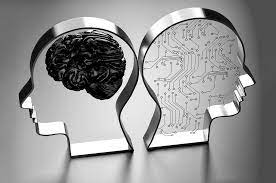
In our rapidly advancing technological landscape, artificial intelligence (AI) has become a buzzword synonymous with the future of innovation. AI refers to the simulation of human intelligence in machines that are programmed to think and learn like humans. The incredible capabilities of AI in processing vast amounts of data at lightning-fast speeds have led some to frame its development as a competition with human intelligence. But is this really a battle of the brains, or are AI and human intellect complementary forces shaping the next frontier of progress?
Human intelligence encompasses more than just the ability to compute and process information; it also involves creativity, emotional depth, intuition, ethics, and values—traits that are inherently human and not easily replicable by machines. AI, on the other hand, excels in areas where high levels of accuracy and efficiency are required, making it invaluable for tasks such as data analysis, pattern recognition, and automating routine processes.
One of the key differences between AI and human intelligence is learning. Humans learn from diverse experiences over time, developing common sense and contextual understanding that influence decision-making. Conversely, AI systems require large datasets to learn and improve through machine learning algorithms yet often lack an understanding of context outside of their specific application areas.
Moreover, while AI can outperform humans in specific tasks where quick computation and pattern recognition are vital—for instance in medical diagnostics, climate modeling or playing chess—it does not possess the general problem-solving capabilities or adaptability intrinsic to human thinking. Humans can apply learned knowledge across various domains and perform mental leaps that combine unrelated concepts to generate innovative ideas.
The concept of AI surpassing human intelligence perpetuates the notion of ‘singularity’—a hypothetical point where AI will become self-aware and possess cognitive abilities surpassing those of humans. Although interesting from a philosophical standpoint, we currently do not possess the technology necessary for such a development. Additionally, ethical concerns about control, bias, accountability, and ensuring that AI serves collective needs represent significant hurdles.
Rather than viewing it as a struggle for supremacy between digital computations and organic reasoning, it may be more productive to see AI as a tool that augments human capabilities. Integrating AI into diverse sectors has the potential to solve complex problems by complementing human skills with machine efficiency. This collaboration could lead to breakthroughs unachievable by either alone.
In conclusion, framing the relationship between AI and human intelligence as a battle may be misleading. It implies opposition when cooperation is key to harnessing the strengths of both forms of cognition for mutual betterment. As we continue to explore this symbiotic interaction, it becomes evident that instead of fearing a rivalry between man and machine, we should focus on fostering an alliance that propels us toward a more intelligent future for all.
